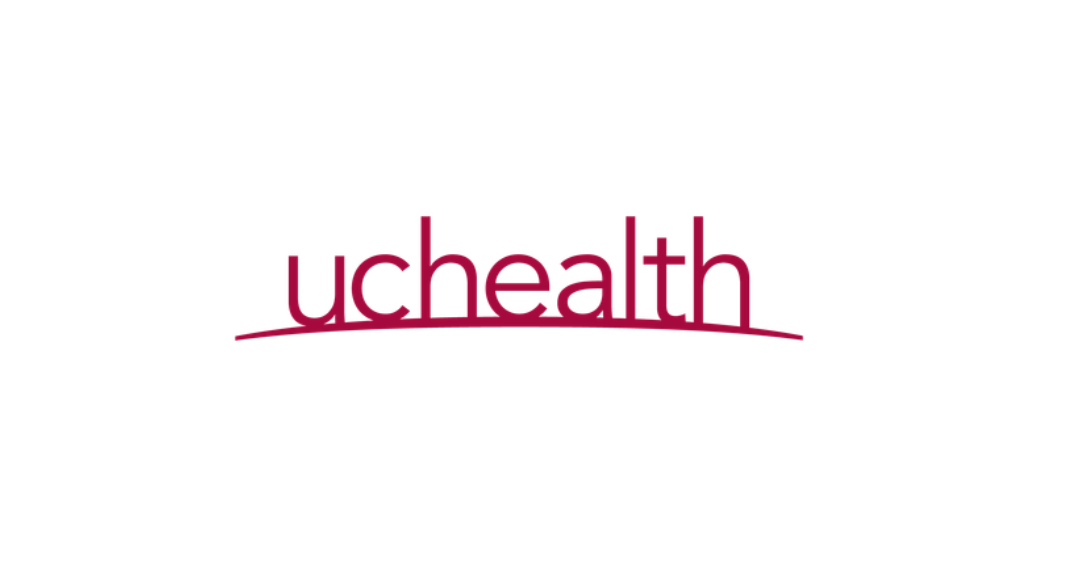
Dec 13, 2024 | Uncategorized
Navigating the prior authorization process can often feel like a hurdle, delaying essential care and adding to administrative workloads. However, the Gold Card program presents a new approach to streamline these processes, benefiting both physicians and patients alike.
What Is the Gold Card Program?
Several major insurance providers, including UnitedHealthcare and Highmark, have introduced the Gold Card program—an initiative aimed at simplifying the prior authorization process for top-performing physicians. This program rewards providers with a proven track record of high approval rates by reducing the need for extensive documentation and approval steps.
How Does It Work?
Physicians who meet specific eligibility criteria—such as consistently high prior authorization approval rates—may qualify for a Gold Card. Once enrolled, these physicians can bypass the traditional prior authorization process for certain services. Instead of submitting a detailed prior authorization request, they only need to provide an “advance notification.” This notification confirms eligibility and network status, eliminating the need to submit clinical documentation.
Key Benefits of the Gold Card Program
- Reduced Administrative Burden: Less paperwork translates to more time for patient care and other critical responsibilities.
- Faster Patient Care: Streamlined processes enable timely access to treatments and prescriptions.
- Improved Practice Efficiency: Simplifying administrative tasks enhances overall workflow and productivity.
Important Considerations
While the Gold Card program offers significant benefits, it’s important to remember that the specifics can vary. Eligibility criteria, as well as the services covered under the program, depend on the insurance provider and state regulations. To understand how this program may apply to your practice, consider reaching out directly to your insurance provider for detailed information.
Staying Informed in a Changing Landscape
As the healthcare industry evolves, initiatives like the Gold Card program exemplify efforts to reduce administrative friction and improve care delivery. By staying informed about these developments, healthcare providers can better position themselves to adapt and thrive in a dynamic environment.
Welter Healthcare Partners remains committed to providing up-to-date insights and resources to help healthcare professionals navigate these changes. We’re here to support your success in delivering quality care with fewer obstacles.

Dec 6, 2024 | Uncategorized
Recently, Anthem Blue Cross Blue Shield faced significant backlash after proposing a policy that would deny coverage for anesthesia costs beyond an arbitrary time limit for surgical procedures. This unprecedented move by Anthem’s plans in Connecticut, New York, and Missouri drew sharp criticism from patients and medical professionals. Under this policy, Anthem planned to deny payment for anesthesia services if the care exceeded pre-determined time limits, disregarding the unpredictable nature of surgeries. Fortunately, following public outrage and expert pushback, Anthem reversed this decision.
Anesthesia care is not just about keeping patients unconscious during surgery; it is a highly specialized service that requires anesthesiologists to tailor their approach to each patient’s unique health conditions. Surgeries often extend beyond anticipated times due to complications, patient-specific needs, or procedural complexities. Denying payment for such essential care would not only jeopardize patient safety but also undermine surgeons’ ability to deliver effective and timely interventions.
Anthem’s policy highlights a disturbing trend: prioritizing profit margins over patient welfare. As reported, Anthem’s parent company, Elevance Health, boasted a substantial increase in year-over-year net income, reinforcing suspicions that this policy aimed to reduce payouts at patients’ and providers’ expense. Moves like this break down the trust between insurers, physicians, and patients, creating unnecessary stress for healthcare professionals who are committed to providing high-quality, comprehensive care.This case serves as a reminder of the importance of vigilance in protecting patient care from cost-cutting policies.
At Welter Healthcare Partners, we understand the complexities of navigating healthcare policies and ensuring fair reimbursement for services rendered. From coding and provider enrollment to credentialing and audits, we are here to help medical professionals focus on patient care without undue administrative burdens. If you have questions or need support managing your practice, contact us today—because your success is our priority.
Image Source: https://apnews.com/article/anthem-blue-cross-anesthesia-insurance-coverage-c8233db68f76342c4e794320f151a926

Nov 26, 2024 | Uncategorized
UCHealth, Colorado’s largest medical provider, has agreed to pay $23 million to settle allegations of overbilling Medicare and TRICARE for emergency care services. The accusations, which the health system denies, stem from claims that UCHealth improperly used the highest billing code for emergency department visits between November 2017 and March 2021. Federal prosecutors allege the practice violated the False Claims Act by not accurately reflecting the severity of patients’ conditions or the resources used to treat them.
At the center of the controversy are Current Procedural Terminology (CPT) codes used to bill evaluation and management (E&M) services in emergency departments. Federal authorities claim UCHealth automatically applied the highest-level code, CPT 99285, for certain cases where patients had their vital signs checked more often than their time in the ER justified. This practice, known as “upcoding,” has raised broader concerns about its role in escalating healthcare costs. While UCHealth denies the allegations, it opted for a settlement to avoid prolonged litigation and focus on patient care, according to spokesperson Dan Weaver.
The Growing Impact of “Upcoding”
The practice of upcoding, or assigning higher billing codes than appropriate, is a significant driver of rising healthcare costs in the U.S. Studies show that the use of CPT 99285 has surged over the past decade, becoming the most commonly billed E&M code in Colorado. This shift translates to substantial cost differences: Medicare reimburses $621.39 for a level-5 emergency visit compared to $85.89 for a level-1 visit. Private insurers pay even more, with rates exceeding $6,000 for the most severe cases. Critics argue that upcoding not only burdens government programs but also inflates healthcare expenses for patients and insurers.
The UCHealth allegations came to light through a whistleblower complaint by Timothy Sanders, a former revenue recovery auditor for the system. Sanders claimed he discovered the automated upcoding system and that UCHealth failed to address the issue unless patients contested their bills. As a whistleblower, Sanders is entitled to a portion of the settlement and will receive $3.91 million.
Maintaining Compliance in a Complex Billing Landscape
UCHealth’s case highlights the complexities of hospital billing and the potential for errors or mismanagement. With more than a dozen hospitals and millions of patients treated annually, ensuring accurate billing is a challenging but critical responsibility for health systems. This settlement serves as a reminder of the importance of adhering to ethical and transparent billing practices to maintain trust and compliance.
Partnering with Welter Healthcare Partners for Solutions
To help healthcare organizations navigate coding and billing challenges, Welter Healthcare Partners recommends a proactive approach:
- Conduct an Internal Audit: Regularly review E&M code submissions to identify discrepancies and correct errors.
- Provide Education and Training: Strengthen coding team expertise through targeted training that reinforces documentation requirements for each E&M level.
- Collaborate on Adjustments: Work with Welter Healthcare Partners to correct claims and apply for reprocessing to ensure compliance with payer requirements.
Welter Healthcare Partners specializes in supporting healthcare organizations with accurate coding and billing practices and compliance. Contact us to learn how we can help your team implement these corrections and maintain the integrity of your revenue cycle.
More information regarding UCHealth’s overbilling allegations can be found here.
Sep 3, 2024 | Uncategorized
President Biden plans to address the mental health and addiction crisis, both of which have worsened since the start of the pandemic. He intends to allocate funding between substance abuse and mental health services. Continue reading below to learn more.
President Biden is directing $2.5 billion in funding to address the nation’s worsening mental illness and addiction crisis, according to an official from the U.S. Department of Health and Human Services, as reported by Axios.
Why it matters:
Confronting the mounting mental health and substance abuse crisis will be imperative for the Biden administration, even as its primary focus remains on combating the broader COVID-19 pandemic. The funding announced today aims to increase access to services for individual Americans.
The funding surge comes as the president has yet to fill several key permanent positions in agencies that would lead the charge in combating the drug epidemic, including the Food and Drug Administration and the White House Office of National Drug Control Policy. His pick to lead HHS, Xavier Becerra, is expected to be confirmed by a close vote.
Between the lines:
The funds will be divided into two components by the Substance Abuse and Mental Health Services Administration.
- $1.65 billion will go toward the Substance Abuse Prevention and Treatment Block Grant, providing states and territories with money to improve existing treatment infrastructure and create or enhance prevention and treatment programs.
- $825 million will be allocated through the Community Mental Health Services Block Grant program, which states will use to specifically address mental health treatment services.
By the numbers:
A survey conducted last year and published in August 2020 by the Centers for Disease Control and Prevention showed that 41% of U.S. adults reported struggling with mental health or substance abuse related to the pandemic or its solutions, like social distancing.
Before the pandemic, over 118,000 people died by suicide and overdose in 2019. An HHS official says the administration expects that number to increase because of the COVID-19 pandemic. Preliminary data from the CDC indicates that the number of drug overdoses through July 2020 increased by 24% from the previous year.
Flashback:
On the campaign trail, then-candidate Biden often spoke about the need to address the mounting mental health and substance abuse crisis in America, an issue that hits close to home. His son, Hunter, has openly discussed his own struggles with addiction.
The National Suicide Prevention Lifeline (1-800-273-8255) provides 24/7, free, and confidential support for anyone in distress, in addition to prevention and crisis resources. It is also available for online chat.
Original article posted on axios.com
Aug 27, 2024 | Uncategorized
Defining Interactive Complexity +90785:
Interactive Complexity (+90785) is an add-on code used for office visits with a psychologist or other mental health professional that are complicated by factors such as language, behavior, emotions, mandated reporting requirements, or trauma. This code is used in addition to one of the following primary service codes: 90791-90792, 90832-90834, 90836-90838, 90853. (Add-on codes may only be reported in conjunction with other codes, never alone.)
Guidelines for Appropriate Use and Documentation:
Interactive Complexity is applicable when specific communication difficulties are present with patients who typically:
- Have other individuals legally responsible for their care, such as minors or adults with guardians.
- Request others to be involved in their care during the visit, such as adults accompanied by family members, an interpreter, or a language translator.
- Require the involvement of other third parties, such as child welfare agencies, parole or probation officers, or schools.
Interactive Complexity may be reported with psychiatric procedures when at least one of the following communication difficulties is present:
- The need to manage maladaptive communication (e.g., high anxiety, high reactivity, repeated questions, or disagreement) among participants that complicates delivery of care.
- Caregiver emotions/behavior that interfere with the implementation of the treatment plan.
- Evidence/disclosure of a sentinel event and mandated report to a third party (e.g., abuse or neglect with report to a state agency) with initiation of discussion of the event and/or report with the patient and other visit participants.
- Use of play equipment, physical devices, interpreter, or translator to overcome significant language barriers.
Documentation should clearly indicate the type of interactive methods used, such as an interpreter, play, or physical device, and that the patient could not communicate through normal verbal means.
Coverage also includes interactive examinations of patients with primary psychiatric diagnoses (excluding dementias and sleep disorders) and one of the following conditions: developmental speech or language disorders, conductive hearing loss (total), mixed conductive and sensorineural hearing loss (total), deaf mutism, aphasia, voice disturbance, aphonia, and other speech disturbances such as dysarthria or dysphasia. These conditions must be clearly and concisely recorded in the medical record. Other catatonic states may be covered if documentation is submitted with the claim.
When NOT to use Interactive Complexity:
Do not report the +90785 add-on code for Interactive Complexity in conjunction with Psychotherapy for crisis codes or with E/M services when no psychotherapy service is also reported. The +90785 code cannot be used in conjunction with:
- Psychotherapy for crisis codes (90839-90840)
- Family psychotherapy codes (90846, 90847, 90849)
- E/M (evaluation and management) service where no psychotherapy service is reported
Interactive Complexity should not be billed solely for translation or interpretation services. According to the Centers for Medicare and Medicaid Services (CMS), federal laws prohibit discrimination, which in this case would take the form of higher beneficiary payments and copayments for the same service, based on disability or ethnicity. Discernment is advised when billing for translation or interpretation services.
Aug 15, 2024 | Uncategorized
Medicare physician payment cuts are set to take effect on January 1, 2023. Continue reading to learn why many physicians are reaching out to their legislators to prevent these cuts. As members of Congress head home for their August recess, the AMA is urging physicians to contact their legislators with a two-fold message: stop the Medicare physician payment cuts scheduled for January 1, 2023, and reform the Medicare payment systems to prevent the need for such appeals every year.
“The overall goals of Medicare payment-system reform are simplicity, relevance, alignment, and predictability, both for physicians and the Centers for Medicare & Medicaid Services (CMS),” said Cynthia Brown, the AMA’s vice president of government affairs. “The problems we’re seeing arise from a system so complicated that even the Medicare agency struggles to implement it correctly.”
Leading the charge to reform Medicare pay is a key component of the AMA Recovery Plan for America’s Physicians. “You took care of the nation. It’s time for the nation to take care of you. It’s time to rebuild. And the AMA is ready.” The AMA has challenged Congress to enact systemic reforms to make Medicare work better for both physicians and patients. The AMA will continue to fight tirelessly against future cuts and all barriers to patient care.
Brown spoke during “Medicare Payment Principles—A Vision for Reform,” part of the “AMA Advocacy Insights Webinar Series.” The webinar detailed the cuts scheduled for January 1 and outlined the “Characteristics of a Rational Medicare Payment System” (PDF), developed by an AMA-led coalition of 120 state medical and national specialty societies. Physicians were encouraged to contact their legislators and were given tips and resources to guide their conversations.
History Repeats
Last year, physicians faced Medicare payment cuts totaling 9.75%, scheduled to take effect on January 1. “These cuts would’ve been untenable during normal circumstances but were beyond reckless during the public health emergency we continue to face,” said Sandra Adamson Fryhofer, MD, chair of the AMA Board of Trustees. “Additional work is necessary for permanent payment reform.” Congress passed legislation averting these cuts in December, a Christmastime ritual no one wants to maintain.
“We don’t want to be here asking for money every year at the end of the year—and members of Congress don’t like it,” Jason Marino, the AMA’s director of congressional affairs, said in the webinar. “We want a bridge to a permanent solution—so we have a normal, functioning system like the hospitals, nursing homes, and home health agencies. They don’t have to come to Congress every year.”
Physicians are now facing a “portfolio of cuts” totaling 4.5%, Marino noted. But that’s just the beginning. Coupled with 9% inflation, physicians’ Medicare payment update for 2023 is 0%. Additionally, a 5% bonus for successfully participating in an alternative payment model is expiring, and a $500 million bonus pool for Merit-based Incentive Payment System high performers is “going away,” he added. While payment rates for hospitals, nursing homes, and similar facilities are adjusted for inflation, rates for physicians are not, as shown in the AMA-developed chart below.
“That chart tells the story, and we have senators now talking about this chart—that’s how you know it’s resonating,” Marino said. “Everyone who sees that chart realizes that’s not a sustainable path.” However, there is skepticism among members of Congress that Medicare’s physician payment rates are causing patient-access problems. Physicians must tell their senators and representatives how Medicare pay uncertainties hinder giving raises to staff, buying new equipment, and investing in their practices—and how this impedes patient access.
“You want to create some empathy,” he advised. “You have to start with making a connection with your own story, what this means to you as a physician, what it means for your patients’ access, and humanize it in a way that only you can.”
Original article published on ama-assn.org
Page 1 of 12512345...102030...»Last »



